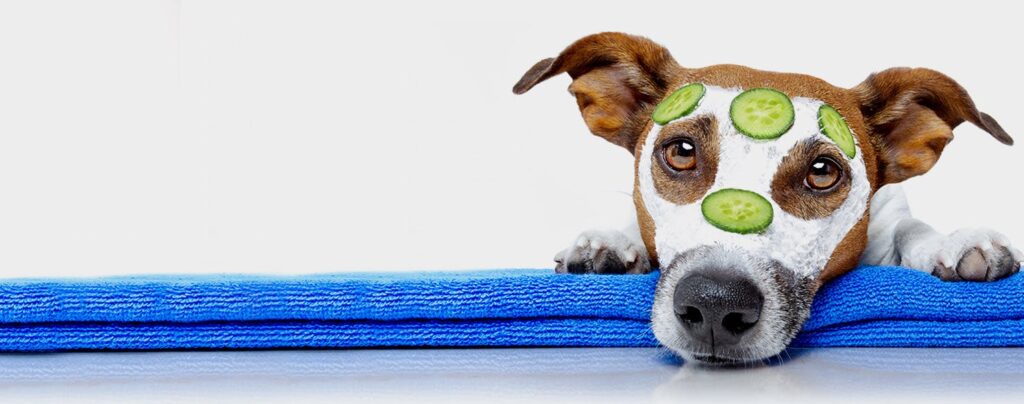
As pet owners, we want our furry friends to be happy and healthy, and one often overlooked aspect of their well-being is their skin health. Just like humans, dogs can experience a range of skin issues that can cause discomfort and even lead to more serious problems if left untreated. However, with proper care and attention, you can help maintain your dog’s skin in optimal condition. In this comprehensive guide, we will explore the best practices and tips for dog skin care, ensuring your four-legged companion enjoys a life free from skin-related troubles.
Owning a dog is a joyful and rewarding experience, but it also comes with responsibilities, including taking care of their skin. A dog’s skin is not only the largest organ but also a reflection of their overall health and well-being. Just like humans, dogs can experience various skin issues that require attention and care. In this comprehensive guide, we will explore the essential aspects of dog skin care, providing you with valuable information and practical tips to keep your furry friend’s skin healthy and radiant.
Understanding a Dog’s Skin
Before diving into the details of skin care, it is crucial to understand the basics of a dog’s skin. A dog’s skin differs from human skin in several ways, such as thickness, pH balance, and hair coverage. Dogs have a thinner epidermis, a higher pH level, and a higher number of sebaceous glands, which means their skin has different needs and requires specific care.
Regular Grooming Routine
Brushing: Regular brushing is essential for maintaining healthy skin and coat. It helps remove dirt, debris, and loose hair while stimulating blood circulation. Additionally, brushing helps distribute natural oils throughout the skin and prevents matting and tangling.
Bathing: Bathing frequency depends on the dog’s breed, lifestyle, and skin condition. Over-bathing can strip away the natural oils that protect the skin, leading to dryness and irritation. Use a dog-specific shampoo that is mild, pH-balanced, and free from harsh chemicals. After bathing, ensure thorough rinsing to prevent shampoo residue.
Nail Trimming: Overgrown nails can cause discomfort and affect a dog’s gait, leading to skin problems. Regular nail trimming is essential to prevent injuries, ingrown nails, and skin infections. Use proper nail clippers designed for dogs and take care not to cut the quick.
Proper Nutrition
Balanced Diet: Nutrition plays a significant role in maintaining a dog’s overall health, including their skin. Ensure your dog’s diet is well-balanced, providing essential nutrients, vitamins, and minerals. Consult with your veterinarian to determine the most suitable diet for your dog’s breed, age, and specific needs.
Omega-3 Fatty Acids: Omega-3 fatty acids, commonly found in fish oil supplements, can promote healthy skin and reduce inflammation. Adding these supplements to your dog’s diet can alleviate dryness, itchiness, and certain skin conditions.
Environmental Considerations
Allergens: Dogs can be allergic to various environmental factors, including pollen, dust mites, mold, and certain foods. Identifying and minimizing exposure to allergens can help prevent skin reactions. Regularly clean your dog’s living area, vacuum frequently, and consider using hypoallergenic bedding materials.
Temperature and Humidity: Extreme temperatures and low humidity can impact a dog’s skin health. In cold weather, protect your dog with appropriate clothing and limit their time outdoors. In hot weather, provide shade, fresh water, and avoid excessive sun exposure to prevent sunburn.
Identifying and Addressing Skin Issues
Common Skin Problems: Dogs can suffer from various skin issues, such as dryness, itchiness, hot spots, rashes, infections, and allergies. Familiarize yourself with the common signs and symptoms of skin problems, such as redness, flaking, hair loss, and excessive scratching.
Regular Check-ups: Regular veterinary check-ups are essential to monitor your dog’s overall health and detect potential skin problems early on. Your veterinarian can provide appropriate treatment and recommend specialized care if needed.
Consultation with Professionals: If your dog develops persistent or severe skin problems, consult with a veterinary dermatologist if you’re looking for vegan skincare or a certified dog skin specialist. These professionals have in-depth knowledge and experience in diagnosing and treating complex skin conditions.
Conclusion
Caring for your dog’s skin is not just a matter of aesthetics but an essential aspect of their overall health and well-being. By understanding their skin’s unique characteristics, establishing a grooming routine, providing a balanced diet, and addressing environmental factors, you can help maintain your dog’s skin in optimal condition. Regular check-ups and seeking professional help when needed will ensure that any skin issues are promptly addressed. With proper care and attention, you can keep your beloved furry friend’s skin healthy, comfortable, and glowing, ensuring many happy years together.

